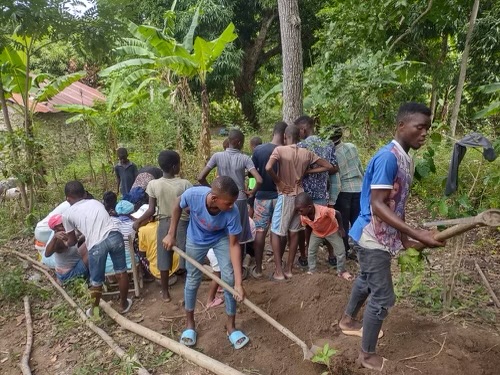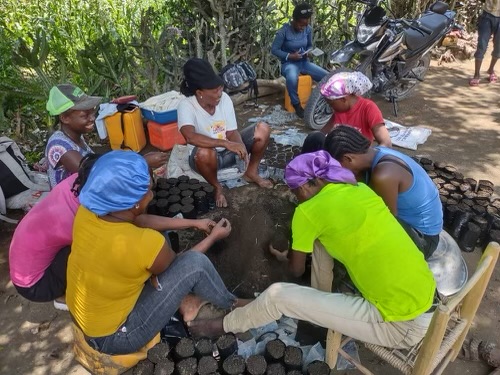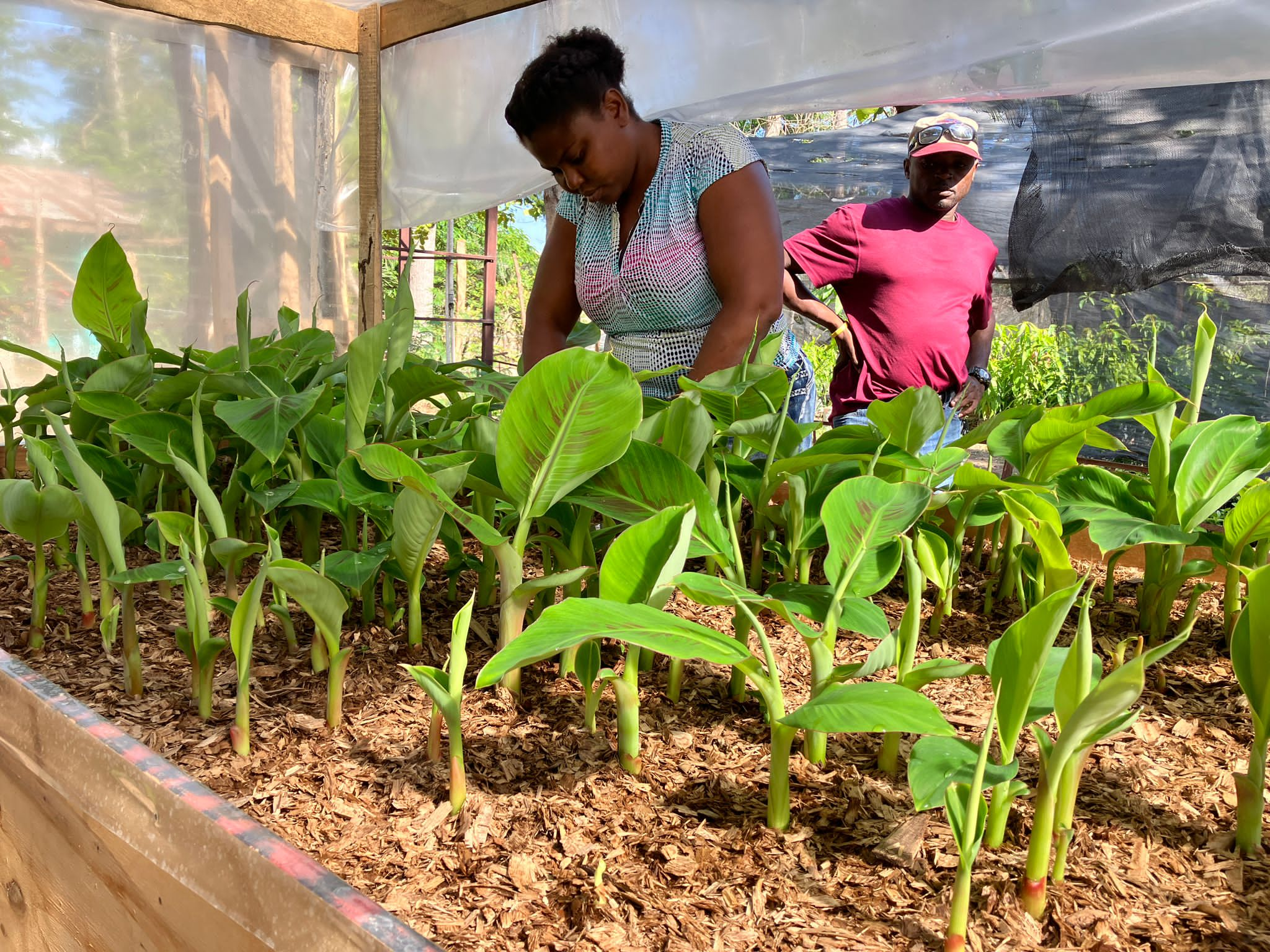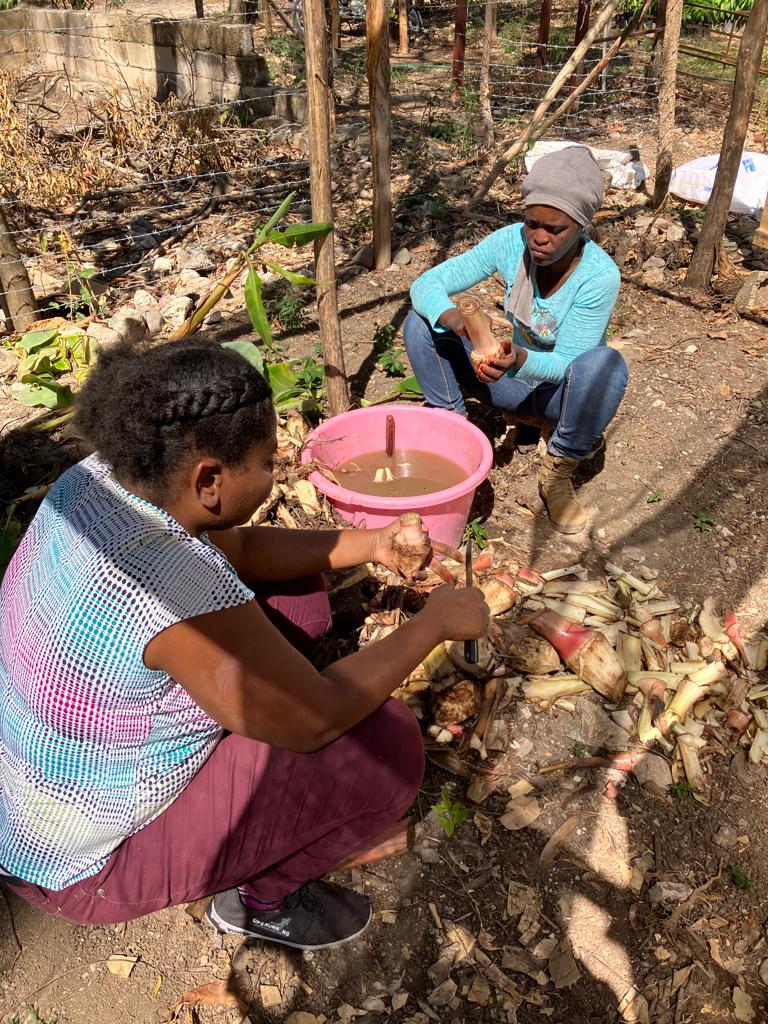It's Not Just Oxfam
Last week The Times reported on a 2011 internal investigation conducted by Oxfam into the behavior of some of its team in Haiti.
Quixote Center’s work in Haiti prioritizes systemic change. Our theory of change has three aspects:




Quixote Center initially launched Haiti Reborn in 1991 during a period of renewal in Haiti, following the election of Aristide and the rise of Lavalas, a popular movement for democratic reform. The coup that ousted Aristide later that year led us to focus our efforts on speaking out against United States intervention in Haiti. US foreign policy as well as development aid still has enormous influence over Haiti and its future. US NGOs and churches also funnel significant funds into Haiti, leading many Haitians to dub their country “the republic of NGOs.”
The Quixote Center partners with Haitian organizations to support smallholder farmers to build sustainable livelihoods from agriculture and reforestation. The Jean Marie Vincent Formation Center located in Grepen, Haiti, is our primary partner in the north while in the south DCCH, the Christian Community Development in Haiti is our main partner in Gouin, Les Cayes.
There is a major humanitarian crisis that is worsening the medical, economic, housing, security and other social aspects of life in Gros Morne. The Quixote Center is working with our local partners to support vulnerable familiesin through our Emergency Campaign. You can read more and support the campaign HERE.
The Jean Marie Vincent Formation Center houses a tree nursery, a model instructional garden and multiple classrooms. These resources help farmers increase the yields of their farms, find new markets for their products, and gain access to the seeds and technology they need to succeed. The agronomy team from the JMV Center travel throughout the Arrondissement of Gros Morne to deliver workshops organized with a network of small farm associations, the Catholic Church’s Caritas network, and local schools. With our support, the JMV Center also maintains the Tet Mon model forest, a reforestation project that is the only one of its kind in the region. The JMV team holds formation sessions on reforestation and tree maintenance for local leaders, schoolchildren, and agronomy students.
The Social and Economic Recovery Program was launched in January 2025 as a scalable and replicable pilot project working with 100 rural families reaching up to 1000 people. These participating families are the protagonists of this program that aims to improve their income and food security while building resilience and eliminating dependence on outside assistance. Based on a 2023 community study, the project provides targeted investments in agroecological training, animal care, women empowerment through microloans and small business ventures. After collecting baseline data, the program will be tracking progress with the goal to increase household income by 20%, school attendance by 60%, crop yields by 60% and trade diversification among women.
Read the most recent report from our partners HERE.
Last week The Times reported on a 2011 internal investigation conducted by Oxfam into the behavior of some of its team in Haiti.
Last week, I visited Haiti for the first time. Since Haiti Reborn, the Quixote Center’s program is related largely to reforestation and agroecology, I knew I would hear about and visit trees and gardens. What I knew best was that there would be a thriving forest, where once there had been barren land – and I hiked up the mountain that houses that verdant space on the third day of my visit.
In the fall of 2014 we had two important conferences which spearheaded activities for 2015. Both followed the same participatory model. First was the goat summit: on the first day we had 12-15 staff and leaders who planned out four stations covering goat food, goat parks, goat wellness, and milking goats. On the next two days about 40 people participated and rotated among the four stations and drew up action plans.
During the past fifteen years, Marcel Garcon has emerged as a champion for the sustainability ethic in Gros-Morne, Haiti. Year after year he demonstrates his commitment to restoring ecological balance to the region which has been his life-long home. Whenever I travel with him he is greeted by a near-continuous stream of friends among the rural peasant population. All of them know him as a collaborator, as one who has inspired them to continue working this depleted land with the dream of restoring its productivity.
Last summer we began a partnership with the Green Schools Network in northern Haiti. The organizers of the network have worked with school administrators and teachers to develop innovative ways for students to learn and practice ecological restoration throughout their education. We asked for your help and support to build a permanent nursery at the school in Gran Plenn as our first project together.
Earlier this week explorers announced that they had located the wreckage of Christopher Columbus' flagship, the Santa Maria, off the northern coast of Haiti. For more than 500 years the ship has been sitting beneath the Caribbean Sea mostly ignored by researchers. It was only after retracing Columbus' steps from his original encampment in Haiti that anyone realized the identity of the vessel.
The United States is one of the world’s largest food aid providers, yet its practices are inefficient, in part because of the transportation restrictions. Currently, 50% of all aid given must be sent on U.S.-flagged ships, a rule known as Cargo Preference. The argument for this rule is to maintain a reserve of vessels for times of war, and to support the maritime industry. At the start of 2014 Congress passed some modest food aid reforms in what is known as the Food for Peace Act. These reforms included ways we could more quickly reach the hungry at a lower cost to U.S.
So often in development we hear stories of one side throwing money at the other, who can only use it for a project that they never really wanted (or needed). Unlike this one-sided relationship, The Quixote Center’s entire mission is centered on equal relationship with our partners. Over the New Year we learned of a program that has been ongoing in the northwest of Haiti. About 8 years ago, community members founded a network of “Green Schools” – schools dedicated to reforestation. Each school must apply to be in the network, which now boasts over 60 schools.
Last month both the House and Senate passed “The Omnibus” spending bill – a $1.1 trillion bill that funds every agency of the government. Among the 1,582 pages is what most consider to be a small victory for Food Aid Reform.
Last month both the House and Senate passed “The Omnibus” spending bill – a $1.1 trillion bill that funds every agency of the government. Among the 1,582 pages is what most consider to be a small victory for Food Aid Reform.
Haiti just passed the 4-year anniversary of its devastating earthquake in January 2010. To mark the event, Global Post published this article, “In Haiti, All Eyes on US to Reform ‘Unjustifiable’ Food Aid Program.”
The article highlights that: